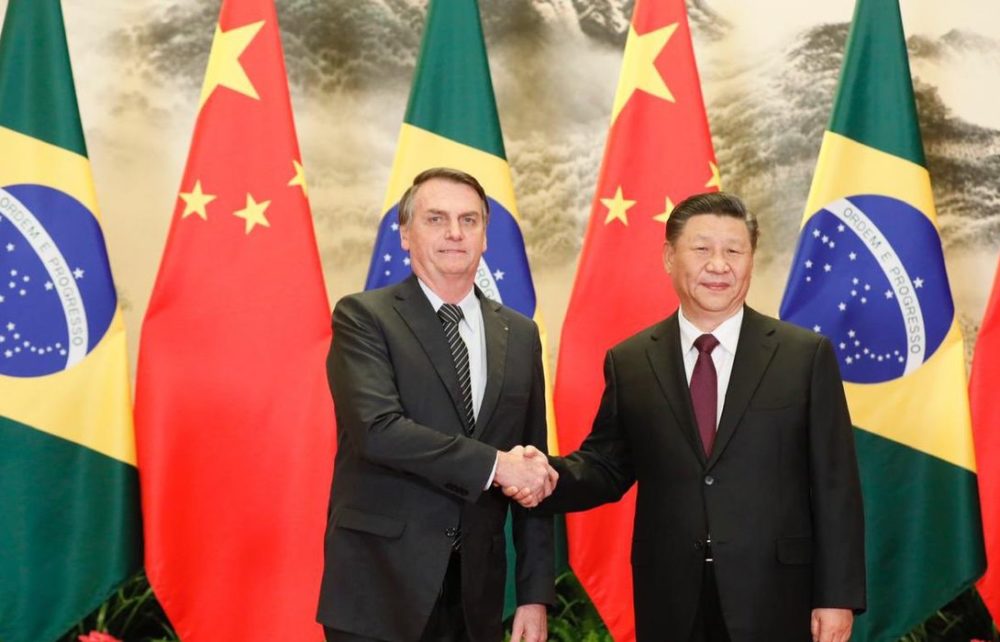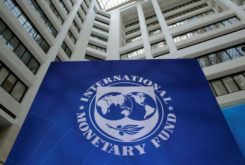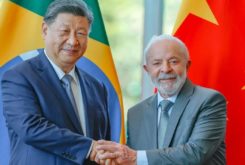The governments of Brazil and China missed the end-2021 deadline to renew the two main documents that define the guidelines and priorities of bilateral relations.
In December, both the Ten Year Plan for Brazil-China Cooperation and the Joint Action Plan – valid for five years – signed between the two countries in 2012 and 2014, respectively, expired, according to the Brazilian press. Talks between the two governments are ongoing since 2019.
While the Ten Year Plan brings common principles that should govern the partnership, the five-year document is more detailed. It gathers goals and appoints interlocutors in several areas, such as agriculture, science and technology, financial cooperation and education, among others. Both documents serve as a compass to guide the long-term bilateral relationship.
Brazil´s Foreign Ministry told newspaper Folha de São Paulo that one of the results of the last high-level meeting of Cosban (Sino-Brazilian High Level Concertation and Cooperation), which is the main institutional coordination mechanism for the Brazil-China relations, led by Vice President Hamilton Mourão and by the number 2 of the Chinese regime, Wang Qishan was a determination to start “discussions to improve the structure” of the mechanism and “prepare a new document to guide bilateral relations”.
The meeting took place in May 2019, in Beijing, and was attended by Mourão and Wang Qishan. Brazil sent the first restructuring proposal in December 2020, according to the ministry. The last Chinese counter-proposal was received in January 2022. The ministry also highlighted that the negotiations on the two plans involve topics ranging from “politics, economy and trade” to “infrastructure, agriculture, culture, information technologies and space cooperation”, among others.
“In a process of this magnitude, it is natural that the evaluation period by technical bodies from both sides is long. In the current circumstances of a pandemic, the process has been lengthened even further, mainly due to the impossibility of face-to-face meetings”, justified the chancellery in note. “On issues that sometimes involve internal sensitivities, face-to-face meetings would allow for greater speed in the exchange of perceptions. The negotiating process continues in 2022, through virtual meetings, and Brazil hopes to conclude it as soon as possible”, it added.
China Says US Trying to ‘Sabotage the Sino-Brazilian Partnership’
The goals in the Joint Action Plan that has just expired include encouraging visits by authorities and working together on certain topics in international organizations. The text also defines the objective of encouraging the participation of Chinese companies in bids in Brazil and ensuring the exchange of information on phytosanitary measures to avoid unnecessary retention of goods at ports.
According to Folha, although the end of the validity of the texts does not have greater practical effects, the failure of diplomacy to update them until the end of last year reflects a cooling of Sino-Brazilian relations during much of President Jair Bolsonaro’s term.
The same source adds that different factors contributed to the two governments reaching the end of 2021 without a consensus on the new documents: the Covid-19 pandemic and the holding – by Chinese demand – of practically all the meetings in a virtual environment; Beijing’s immense bureaucratic apparatus, which requires multiple approvals in different instances when negotiating documents; and the successive frictions that marked bilateral relations until the resignation of former foreign minister Ernesto Araújo (Foreign Affairs).
China Sees Brazil as “an Important Player” in Belt and Road Initiative
Sources told Folha that the climate of conflagration with the Bolsonaro Government only started to be reversed with the arrival of the new chancellor, Carlos França, but had already spilled over into the negotiation calendar of the two plans within the scope of Cosban.
The governments of Brazil and China continue to discuss the documents and an attempt to reformulate the structure of Cosban itself is also on the table. The objective is to try to make the negotiations move forward so that the impasse does not affect the holding, in the first semester, of a planned meeting between the vice presidents.
President of the CEBC (Brazil-China Business Council), diplomat Luiz Augusto de Castro Neves said that the Ten Year Plan and the Joint Action Plan “aim at an order of priorities” in the bilateral relationship and, essentially, “beacon the government and serve guidance for the private sector”. Former Brazilian ambassador to China, he credits the delay exclusively to the effects of the pandemic and does not see a possible political component in the non-renewal of plans.




